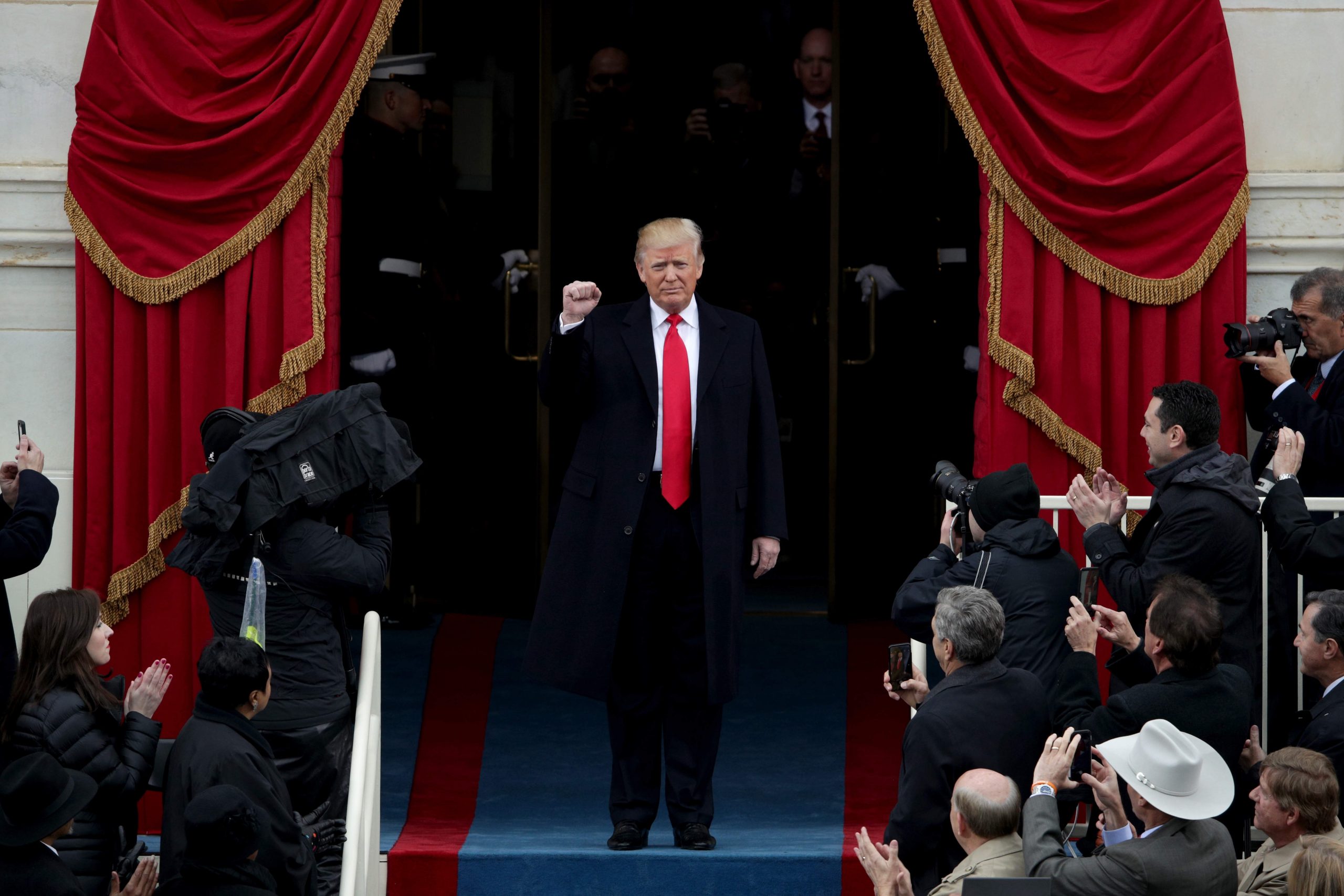
Donald Trump proclaims in his inaugural address that his policy will be “America first” on trade, jobs and taxes. He repeats this as though for slow learners. Brexiteers nevertheless believe that we Britons will get a special trade deal from him, saving us from negotiations with those pesky Europeans.
All US presidents in my lifetime have pursued “America first” policies in their dealings with Britain. Think of the harsh terms exacted for clearing wartime debts to America; the refusal to support the seizure of the Suez Canal in 1956; and Ronald Reagan’s attempts to force Margaret Thatcher, his supposed soulmate, to compromise with the Argentine junta that invaded the Falklands. Those who imagine that Trump will be different regardless of what he says are fools.
Half-truths
Fake news – or, as Trump’s counsellor Kellyanne Conway would put it, “alternative facts” – is bad enough, but another assault on truth is equally (if not more) alarming. I have just read a pamphlet that argues that the peer review system, the process by which academic papers are judged worthy of publication, is hopelessly flawed. At least half of all published papers, it claims, are simply wrong. Therefore, reports from the Intergovernmental Panel on Climate Change, based on peer-reviewed research, have a fifty-fifty chance of being false.
The pamphlet is published by the Global Warming Policy Foundation, set up by the former chancellor Nigel Lawson to question the scientific consensus on climate change and how to tackle it. The writer – Donna Laframboise, who describes herself as a “Canadian investigative journalist” but has no qualifications in science – cites Nature, the Lancet and other reputable sources debating weaknesses in peer review. But that is quite different from arguing that well-established science is as likely to be wrong as right. When they board aeroplanes operating according to Newton’s laws of motion, do Lawson and Laframboise think that they have only a fifty-fifty chance of arriving at their destination?
Post-truth politics appeals to emotion or “common sense” rather than rooting an argument in contestable evidence. Encouraged by some psychology studies (possibly peer-reviewed), the right believes that this is a winning formula because its ideas come closer to voters’ gut instincts than those of the left. The assault on peer review shows how far it will go to undermine the notion that truth or evidence exists at all.
Royal command
Meanwhile, the Mail on Sunday, which normally gives lavish space to global warming deniers, has published an article by Prince Charles which warns that ignoring scientific evidence would “test our world to destruction”. He has also co-written a Ladybird book on the subject aimed at adults.
As a republican, I am instinctively suspicious of the prince’s attempts to influence public policy. Yet in the right-wing press, only two authorities can command space to warn of the dangers of climate change: the heir to the throne and the spirit of Margaret Thatcher, usually communicated through the medium of former Tory ministers such as John Gummer. In the circumstances, I welcome both.
Stay on target
The revelation that a Trident missile test off the Florida coast ended with our nuclear deterrent hurtling towards the US instead of into the Atlantic ought to be a gift to the parliamentary opposition. Invariably, however, Labour also fires Trident in the wrong direction – towards itself, not the Tories.
Polls suggest that nearly half of UK voters reject Trident’s renewal or prefer non-nuclear submarines. Those that mention the NHS produce even higher support for scrapping Trident. All Labour has to do is to shout that renewal will cost at least £25bn (or as much as £100bn, if you include running and servicing costs over 40 years) and promise half of the money to the NHS and social care and the rest to conventional forces (cue a few words about “our brave boys”). Jeremy Corbyn is a lifelong supporter of nuclear disarmament. His opposition to Trident was the chief reason that he was elected leader. His failure to persuade his party to speak with one voice on this matter is an indictment of his leadership qualities.
Jackie’s Camelot
Watching the film Jackie the other day, I felt the contrast between the mean, graceless and xenophobic presidency that Donald Trump promises and what Jackie Kennedy retrospectively described as the “brief shining moment” of John F Kennedy’s presidency, which lasted less than three years. The Kennedys hosted White House dinners for artists and writers and persuaded the classical cellist Pablo Casals to give a concert there. It is difficult to imagine anything similar during the Trump era.
But the film, based on an interview that Jackie Kennedy gave to Theodore H White of Life magazine soon after her husband’s assassination, hints at a darker view of his presidency. JFK was the first president who deliberately constructed an image for the media age, with his wife as a star turn. The film shows her, within days of his death, burnishing that image and, in the interview with White, deploying even the blood that stained her clothes in Dallas to strengthen the Kennedy myth.
She successfully secured heroic status for Kennedy and his presidency. Yet his priapic record suggests that he was hardly a paragon in his treatment of women and his “locker-room talk” was probably no better than Trump’s. He spoke eloquently of civil rights but it needed his coarse and uncultivated successor, Lyndon Johnson, a master of bullying, compromise and cajolery, to push through the necessary legislation.
No US president has ever been perfect. Trump is more imperfect than most – and perhaps all – of his predecessors. But we should still wait to judge him on his actions and achievements.
This article appears in the 26 Jan 2017 issue of the New Statesman, The eclipse of the West




